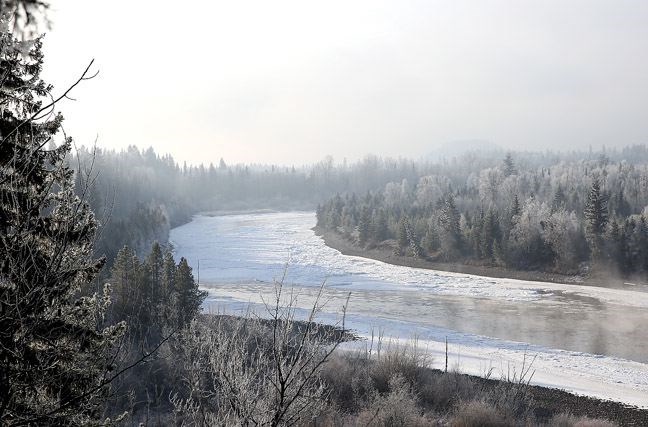Leaders of the Nadleh Whut’en and Stellat’en First Nations say a regime for the regulation of the surface waters throughout the whole of their territories has been enacted and are calling on the provincial government to collaborate with them on the initiative.
Proponents will now have to win their consent for projects that could affect any rivers, lakes, streams and creeks, according to a press release issued Wednesday afternoon.
And for approved projects, economic accommodation through such avenues as revenue sharing agreements, impact management and benefits agreements and project equity arrangements will also be required.
In an interview, Nadleh Whut’en elected chief Martin Louie said the move was made partly in answer to troubles they've been having with the Endako mine.
"A lot of the mines have one outlet into the water or two at the most, but this one has seven or eight of them coming out of there and they go into different streams," Louie said. "We tried to stop it and they're using grandfather laws to protect themselves and do anything they want."
The standards set out in the regime for water quality are higher than the provincial standards, according to the statement.
The Nadleh Whut’en and Stellat’en territories are east of Prince George with their main reserves near Fort Fraser and Fraser Lake.
"I'm not here to attract the activists, I'm here to attract the real environmental people," Louie said. "That's the difference."
In an e-mailed response, the Ministry of Environment said it has not yet received the declaration, and so is not in a position to comment on it specifically. "However the province and First Nations share an interest in protecting water now and into the future."



